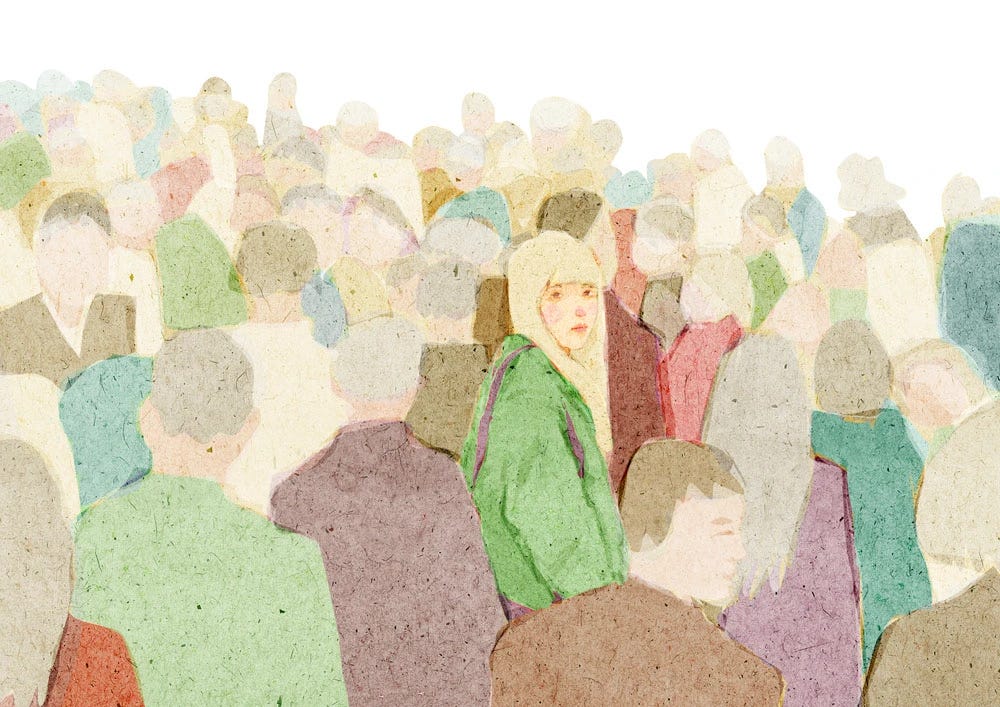asserting your own frame
reasonable and unreasonable dreams
When one spends any extended amount of time in SF, the central mechanism, and most seductive quality of the city, becomes clear: a strong assertion of frame. What I mean by frame is somewhere between self esteem and worldview. You have a personal north star narrative about the world around you and your place in it. For example, what constitutes ‘reasonable desire’ in SF might seem unreasonable anywhere else. For all of its rationality, there are equal parts mysticism and faith.
It has been a challenging and rewarding place to spend my twenties as someone who grew up with a set of strong societally curated desires and well defined routes to meaning.
At some point, all your given frames crack. I grew up in South-East Asia, a dreamy misfit in public school. From elementary to early high school, my grades were entirely a write-off and I was socially a little recluse. Nose in a book somewhere, drawing something, lost in my own mind. In hindsight, the inwardness of my attention was a blessing. My talents came with flow, immense concentration and ease; my great flaw was an inability to redirect my efforts toward getting better at things I was bad at. For some time that translated to an extreme volatility in personhood and identity. Competent in very niche, potentially useless areas. In others, hopeless and difficult. Which was true? Which story would I believe?
Those years made it clear to me that there is possibly nothing more important to a young person’s development than learning how to assert your own frame.
Otherwise, there are too many compelling external frames to adopt. Your teachers, parents, and peers triangulate a ceiling of possibility, and create a warm, soft place of certainty, even if that certainty is limiting. I think back and I’m floored by this idea that I could’ve written myself off too early. Or that children write themselves off all the time for not being perceived as smart or capable, forced into a certain realm of lower agency. The most dangerous implicit frames we relay to others are that they are static, or that it is ever too late. But we see this literally all the time with all sorts of life stage advice, from career to partners to parenting. Here are some common bad frames: I am incapable, or I will fail, I won’t be able to find love or it isn’t possible for me.
Old ideas of who you are, the cruelest and weakest version of yourself, aren't true or relevant anymore, but they do become deeply embedded. Sometimes, I wake up in a cold sweat believing the mirror is distorted: I haven’t changed at all. I’m still that little girl with big, unreasonable, dreams.
Wanting is a frightening thing, Caroline Knapp writes in Appetites, especially when you lack models for it, or permission or a sense that your own desires are good, valid, and satiable.
To pry yourself from an old frame is not bloodless! Especially when there are ties to history, identity, culture, family. Strong interpersonal ideas persist. A very old story echoes through every chamber in one’s heart. Such revisitation and reconfiguration constitute a life.
The poems and books I’ve enjoyed the most recently are about the toll of the world on man’s imagination. The narrator’s inability to tell if what he or she desires is real or fantasy, and the pursuit of the quest to learn the answer regardless.
Dreams demand expression, the same as love, I think. You can’t negotiate with either, they just dismantle you.
Paul Valéry, the French poet and essayist says this about poetry: it is like finding a fruit on the ground, a piece of fallen fruit you have never seen before, and the poet’s task is to create the tree from which the fruit will fall. Similarly, frame is the journey upstream, the process of becoming the kind of person who can write the work one wants to write. By extension, the life you experience begins with your frame. You set certain principles for your behavior, you’re proud of yourself when you reach your own standards, and you stay centered on your own line of sight. You don’t let the world leak into you. You pull water from an internal well.
We give ourselves representations in the world, and they are all self-invented. For years I looked anxiously to others define for me what dreams were achievable, what hills were worth climbing, permission to give myself a particular frame. The realization I ultimately came to, both terrifying and freeing, is that no one is coming to save you! Conversely, no one can tell you how to behold yourself. You simply have to trust your own way of seeing.




This is so fascinating. The way meaning and perception is framed is something that is often overlooked. we accept things as they are instead of questioning the framework that makes them appear that way.
It's taken my until now, at 31, to choose to behold myself exactly how I want. I am no longer adhering to any external framework. I am the maker of meaning. I am the beholder and the beheld. It's freeing!
It takes so much courage to do this. It's courage that I'm just learning about and stepping into. I am ambitious, wanting to pursue different things all at once while knowing that I may not be able to achieve world class mastery in all of them and making peace with that.